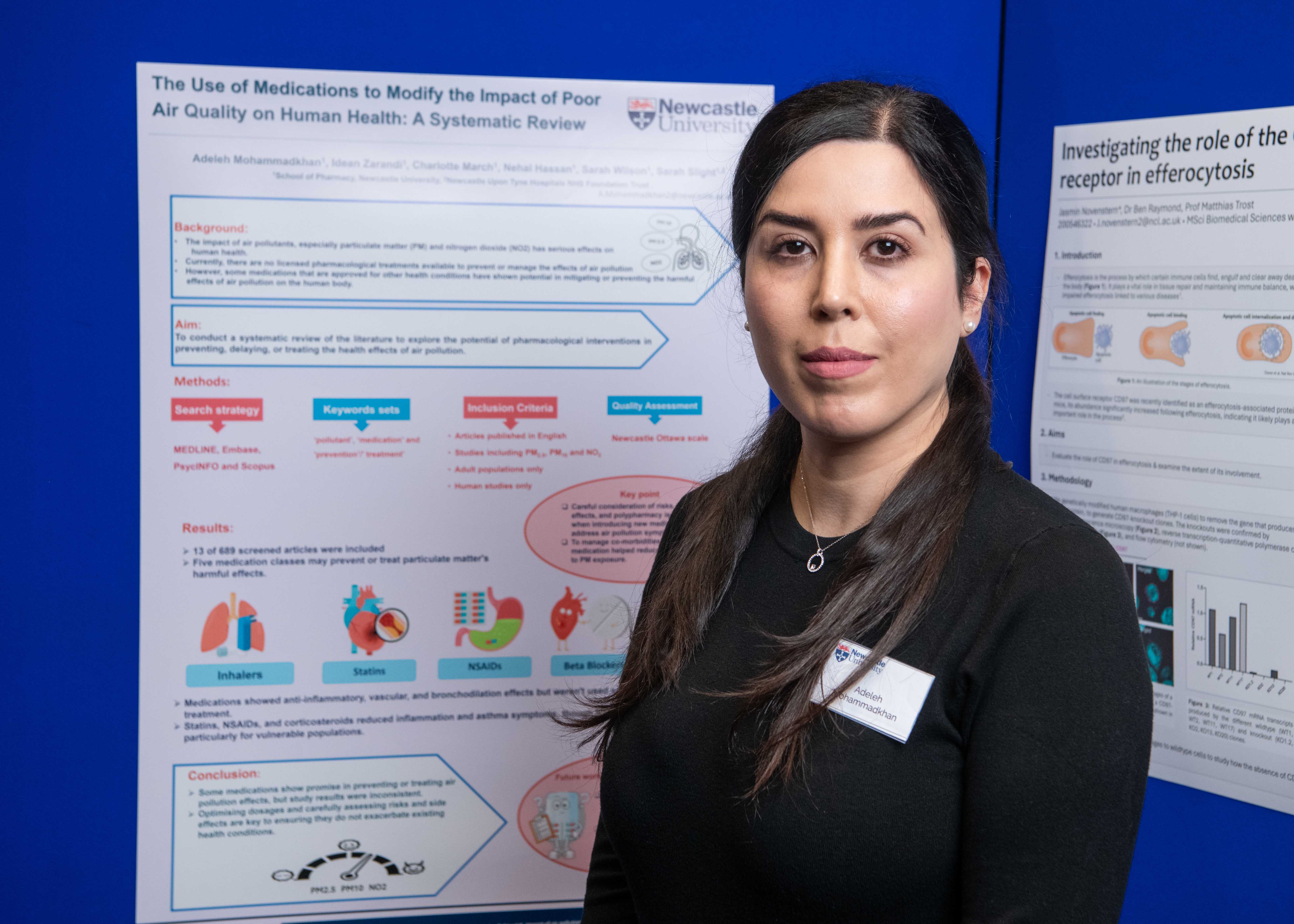Participants
 Adeleh Mohammadkhan
Adeleh Mohammadkhan
- The Use of Medications to Modify the Impact of Poor Air Quality on Human Health: A Systematic Review
- Master of Pharmacy with Honours
Fine particulate matter, especially PM2.5, PM10, and nitrogen dioxide (NO2), poses significant health risks, contributing to various medical conditions and increased mortality. Ambient air pollutants can penetrate deep into the lungs and contribute to respiratory, cardiovascular, and endocrine diseases. Currently, no medication is specifi cally approved to address these health impacts. This systematic review, registered with PROSPERO (CRD42023476448), investigated potential treatments to prevent or reduce the impact of air pollution on health by searching Medline, Embase, PsycINFO, and Scopus using specifi c terms relating to ‘pollutant’, ‘medication’, and ‘prevention/treatment’. Thirteen studies were included and examined the effects of statins, NSAIDs, anti-diabetic medications, beta-blockers, systemic glucocorticoids, and inhalers. Statins and oral anti-diabetic medications significantly lowered inflammation markers, beta-blockers improved heart rate variability, and inhaled corticosteroids alleviated asthma symptoms.
These results suggest that beta-blockers, anti-inflammatory drugs, and diabetes treatments may help reduce the health risks of air pollution. Further research is needed to assess their full benefits and risks.
Funded by: Newcastle University Research Scholarship
Project Supervisor: Professor Sarah Slight
